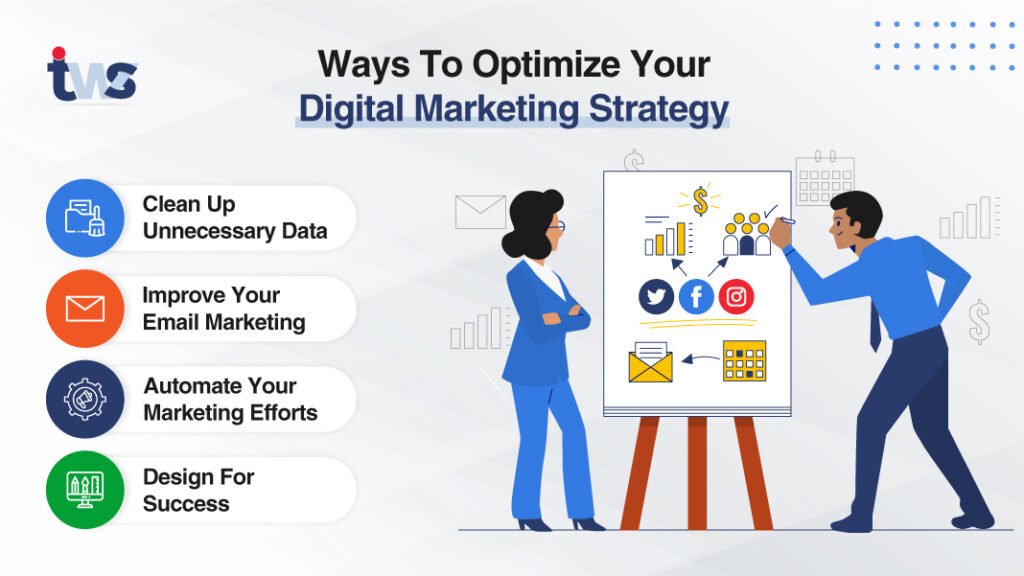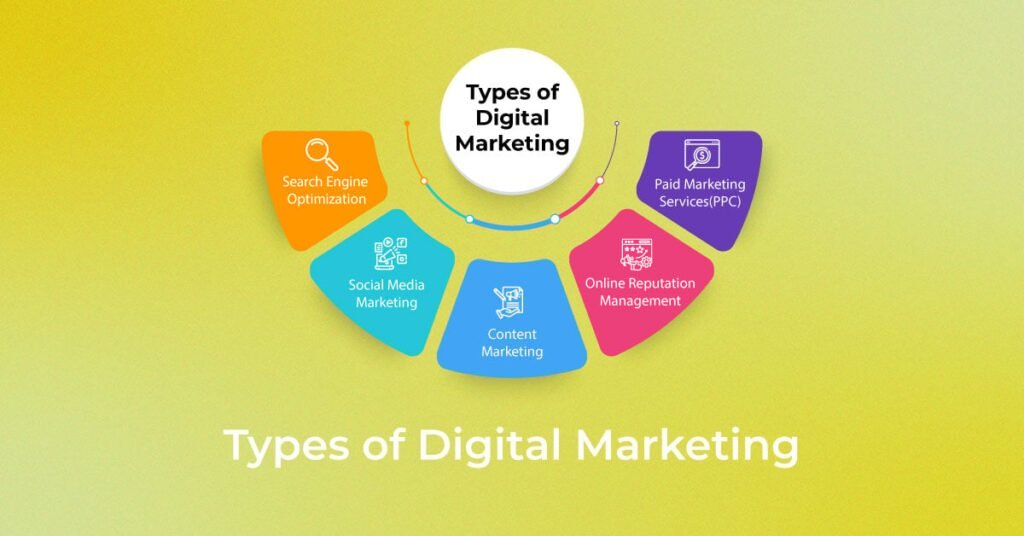
Digital Marketing In today’s competitive digital landscape, achieving success in marketing requires a strategic and optimized approach. The evolution of digital platforms and consumer behavior demands a comprehensive understanding of effective strategies and tools to ensure success. This article delves into the essential aspects of digital marketing that are vital for optimizing your approach and achieving remarkable success.
Understanding the Digital Marketing Landscape
The Dynamics of Digital Marketing
Digital marketing encapsulates a diverse range of strategies and channels aimed at reaching and engaging with a target audience online. From SEO and content marketing to social media, email marketing, and paid advertising, understanding each facet’s role is crucial.
Evolving Consumer Behavior
The digital sphere constantly evolves, and so does consumer behavior. Adapting to changing consumer trends, preferences, and behaviors is imperative for successful digital marketing strategies.
Crafting an Effective Digital Marketing Strategy
Defining Clear Objectives
A well-defined strategy begins with setting clear and measurable goals aligned with overall business objectives. Whether it’s increasing brand awareness, generating leads, or driving sales, clarity in objectives is fundamental.
Target Audience Identification
Understanding your target audience’s demographics, behaviors, and preferences enables the creation of tailored and relevant content, ensuring effective communication and engagement.
Content Creation and Optimization

Compelling and relevant content lies at the heart of digital marketing success. From SEO optimization to engaging copywriting, content should resonate with the audience and align with their interests.
Utilizing Multiple Marketing Channels
Diversification across various digital channels ensures wider reach and engagement. A multi-channel approach allows brands to connect with their audience at different touchpoints.
The Role of Data and Analytics
Leveraging Data for Insights
Data-driven decision-making is pivotal in today’s digital marketing landscape. Analyzing metrics and data insights helps in understanding campaign performance and audience behavior.
Implementing Analytics Tools
Utilizing analytics tools such as Google Analytics, social media analytics, and CRM systems provides valuable insights to refine strategies and optimize campaigns.
Embracing Innovation and Adaptability
Embracing New Technologies
The digital landscape is ever-evolving, and embracing emerging technologies like AI, AR/VR, and chatbots can give businesses a competitive edge.
Flexibility and Adaptability
Remaining agile and adaptable to changes in technology and consumer behavior ensures resilience and continued success in digital marketing efforts.
Measuring Success and Continuous Improvement
Key Performance Indicators (KPIs)
Establishing relevant KPIs allows for the measurement of campaign success. Metrics such as conversion rates, click-through rates, and engagement metrics help gauge performance.
A/B Testing and Optimization
Continuous improvement is achieved through A/B testing and optimization of strategies. Experimenting with different approaches allows for refinement and better results.
Conclusion
In conclusion, the digital marketing landscape is dynamic and multifaceted, demanding a strategic and holistic approach for success. By understanding the dynamics, crafting an effective strategy, leveraging data, embracing innovation, and continually measuring and improving, businesses can optimize their digital marketing approach for remarkable success.

Thank you so much!